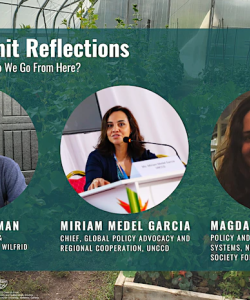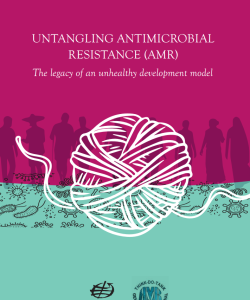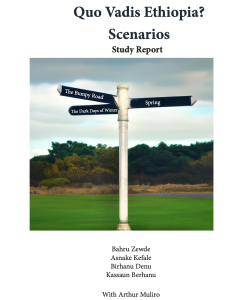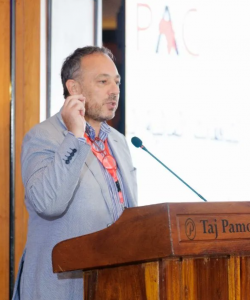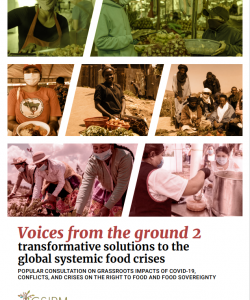News
More than 200 organizations, including SID, have pledged to seek to change our systems in this historic Santiago Declaratio. We want our systems to place a higher priority on human rights and ecological sustainability, rather than GDP growth and narrowly construed economic gains.
In this webinar, SID's Magdalena Ackermann, will reflect together with a panel of other experts questions at the intersection of food security, climate change, migration, desertification and land rights to address key directions about the future of people and the planet.
The fifth episode of the GHW6 podcast series features Magdalena Ackermann, exploring the structural flaws of the global food system, which pollutes, consolidates control in a few oligopolies, and ravages the land needed for production, while failing to meet the world’s need for healthy and nutritious food.
Nicoletta Dentico, SID's Director of Global Health Justice Programme discusses the early draft of what the future treaty on pandemics could contain as countries gathered in Geneva at the World Health Organization (WHO) to discuss the future of global health.
Antimicrobial resistance (AMR) possibly represents the greatest global crisis in public health today, and yet - as we shall try to illustrate - the phenomenon stretches well beyond the health domain.
"Quo Vadis Ethiopia?" is a scenario-based report developed by the Forum for Social Studies (FSS) and the Society for International Development (SID), exploring three possible futures for Ethiopia, offering a deep, research-based reflection on how current transitions may unfold over the next decade.
SID's Executive Director, Stefano Prato was invited to the Pan-African Conference on Illicit Financial Flows, where he discussed the importance of a UN Tax Conventioned and shared: "The call for a UN Tax Convention is not only a struggle of the Tax Justice movement but of all those who want a turning point to transform our realities."
This report tells the stories of those most affected by this crisis. They provide rich evidence of the actions taken by women, young people, Indigenous Peoples, peasants, pastoralists, fisherfolks, landless, to provide practical and strategic responses to the food crisis.


